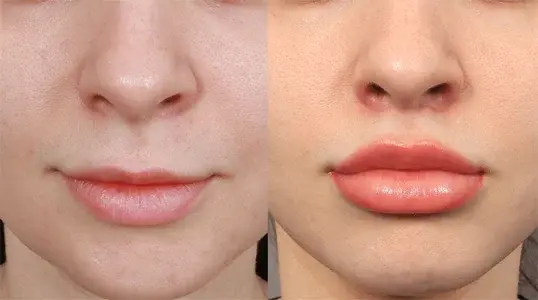Aging With Breast Implants
- Jun 18, 2018
- 4 min read
Updated: Sep 1, 2025

If you're curious about issues associated with aging with breast implants, there are two main areas to think about: cosmetic concerns and medical concerns. Typically, if you aren't experiencing any cosmetic or medical problems with your breast implants, there's no need for concern. Many individuals retain their implants for many years without requiring additional surgery or replacement.
Cosmetic Concerns: Breast Implants and Aging
Cosmetic concerns associated with breast implants can mirror those related to natural aging, particularly issues like sagging. If you notice that your breast implants have sagged to a degree that is unsatisfactory, you might consider either replacing the implants or undergoing a breast lift. What causes cosmetic changes in breasts?
Sagging. This is the most prevalent and natural cosmetic change observed as individuals age with breast implants. Sagging can often be addressed with a breast lift, and occasionally with new implants.
Deflation. A slightly deflated appearance may result from an implant sagging or shifting position. However, significant deflation could indicate a ruptured implant. In the case of a saline implant rupture, the saline leaks out, leading to a change in breast shape and size within one or two days. If this occurs, medical advice suggests removing the implant.
Asymmetry. If your breast implants are asymmetrical, surgery might be warranted. Asymmetry can arise from issues during the initial implant surgery, such as improper placement of one or both implants.
Medical Issues: Aging With Breast Implants
While you may consider taking action to improve a cosmetic issue with breast implants, sometimes there are also medical reasons you would want to speak with a breast implant surgeon.
If you think your breast implant feels hard and uncomfortable, this could be a condition called capsule contracture. What’s often happening in this case is more related to the scar tissue than the actual breast implant. Occasionally, scar tissue thickens and contracts, which makes the breast feel hard, and can lead to discomfort. Often this can be repaired with surgery, either with or without replacing the implants.
Saline implant deflation. If a saline implant tears, it will generally deflate over a day or two. The benefit of this is you have a quick cosmetic sign to let you know the implant has ruptured and deflated. When this happens, it is important to have the implant removed. We can then often replace the implant with a new one during that same operation.
Gel implant rupture. Although it’s easy to tell when a saline implant has ruptured, gel implants are trickier. This is because the structure of the gel implant means that even with a tear, the gel may stay in place. The gel is designed to not cause any adverse reaction inside your body. This is preferable from a cosmetic standpoint, but since it is important to diagnose a ruptured implant, sometimes doctors have patients undergo an MRI scan every few years. These MRI’s can tell if someone aging with a breast implant has had a rupture.
If you have any medical concern about your breast implants, please speak to an experienced surgeon who can help you decide if it would be best to replace the implants.
How can breast implants affect medical screenings as I get older?
There are 2 concerns patients ask about, in terms of medical screenings and aging with breast implants:
Can a mammogram cause my breast implant to rupture?A mammogram compresses the breast, so patients can be concerned about a breast implant rupturing from the pressure. However, it is very rare for an implant to break because of a mammogram. If your implants have been in place for more than 10 years, there is a slightly higher chance of this happening. Ask your doctor and mammogram technician about any concerns you have about older breast implants and the pressure from a mammogram machine.
Can a breast implant get in the way of an accurate mammogram reading?Most patients are able to get accurate breast cancer screenings, even with implants. Mammogram technicians are trained in how to get the best reading for patients who have breast implants. It’s important that you tell the mammogram technician that you have implants. They will be able to use certain techniques to ensure a clear reading, without the implant obstructing the view. Implants that have been placed under the muscle generally have even less chance of interfering with a mammography reading.
Are aging breast implants dangerous?
The majority of breast implant patients do not run into issues as they age with their implants, and can have their implants for decades, without risk. If you have either cosmetic or medical concerns about your implants, please see a breast surgeon so they can help you evaluate whether that issue can and should be addressed with surgery.
As I age, should I get my older breast implants replaced with a breast implant revision?
If your breast implants are not causing you problems, you do not need to get them replaced. While some implants sag or leak over time, many of them do not. If you have any concerns, please make an appointment and our expert breast surgeons can help you understand whether breast implant revision is a good option.
Breast implants can last a lifetime for many patients, without cosmetic or medical concern. Some patients do face situations where they want or need to have a surgery to replace their implants. When we place breast implants, we make sure to educate our patients about not just the procedure itself, but also about the factors of aging with breast implants. Please get in touch with us if you would like to set up a consultation for breast implants or to speak about replacing older breast implants



